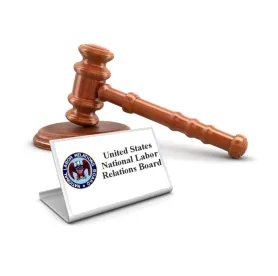Did an NLRB’s Regional Director abuse her discretion when she directed a mail ballot election instead of an in-person (manual) ballot election during the COVID-19 pandemic? Though not getting the attention it deserves, this is an extremely important issue going to the very integrity of the Board’s representation process. Manual balloting has long been the Board’s preferred manner of conducting an election because mail balloting is held under less controlled conditions and, thus, more prone to irregularities. Moreover, mail ballot elections may result in lower employee election participation. Most importantly to employers, mail ballot elections also generally favor unions.
As we reported on July 10, in GC Memo 20-10, the Board’s General Counsel went on record as encouraging a return to the manual balloting norm, offering a set of protocols that parties may use to bring elections back to the workplace and away from the mail. But as we predicted and despite the Board’s traditional preference for manual balloting, Regional Directors (RD) have continued to exercise their discretion, eschewing manual ballot elections, and directing that elections be held by mail ballots as a way of minimizing the risks of the pandemic while still giving workers their day at the representation election ballot box. The NLRB’s August 25 decision in Aspirus Keweenaw, 370 NLRB No. 13 (Aug. 25, 2020), granting an employer’s Request for Review of a mail ballot election and its Emergency Motion to Stay the election, may soon change the recent spate of mail ballot elections.
The case arises out of an election petition filed by the Michigan Nurses Association involving a unit of employees working at an acute care hospital in Michigan’s Upper Peninsula where the rate of COVID-19 transmissions is low and where the hospital already has in place enhanced virus protocols minimizing the risk of infection. Moreover, both the employer and the union agreed to a manual election under the protocols outlined in GC Memo 20-10. Despite these facts, the RD directed a mail ballot election, resulting in the employer’s filing of its Request for Review and its Emergency Stay Motion.
Because the call of whether to conduct an election by in-person balloting or mail ballot is a matter left to an RD’s discretion, the Board will likely have to address whether this RD abused her discretion in directing a mail ballot or perhaps devise a new standard for RD’s to follow when making such discretionary calls. In either event, Aspirus Keweenaw is an important case that should be followed.





 />i
/>i
